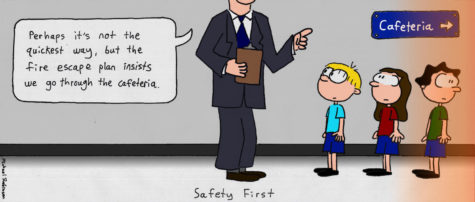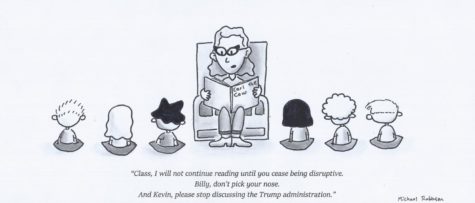Respiratory virus hacks over MHS
When the adjectives used to describe a virus include, rare, not preventable, painful, and widespread, the joy of skipping school slowly slinks away.
Since mid-August, the widespread illness has hit Mo which has affected the respiratory systems of children and adults all over the U.S.
The illness, Enterovirus D68, was first recognized in Ca. in 1962 and since then, only 110 to 200 cases have been cited in the U.S before 2014. However, it reemerged this summer within patients in cities across the Midwest and has spread to over 20 states.
This enterovirus damages the respiratory systems of its host.
“For it to reproduce, it has to infect the cells of our respiratory system, which is the lower part of our lungs,” Dawna Barnhart, biology teacher, said. “In our lungs, it reproduces and makes copies of itself. Then it ends up killing itself, but then it can infect other cells and do the same thing again. As a result of that, the more cells that are damaged or killed, that starts the symptoms.”
Common symptoms include coughing, fevers, runny noses and aching but, more serious cases have resulted in trouble breathing.
Because blood testing is required to diagnose Enterovirus D68, only 160 cases have been confirmed.
Ben Sayers, sophomore, said he thinks he was infected.
“It was three weeks ago, and it was really bad for about four days,” Sayers said. “It kind of kept coming back and it never left for about two weeks. It’s starting to go away now.”
His symptoms included coughing, a headache, congestion, and trouble sleeping. He sought medical help upon losing his voice in order to ensure he didn’t have bronchitis. Over time, he grew to believe he caught the respiratory virus.
“A friend came to school who had it on a Monday, and I got really sick that Tuesday,” Sayers said. “I think that’s probably the main cause of what I had.”
Due to the past rarity of the virus, no vaccine exists to prevent the illness, so in order to slow its spread the nurse’s office strongly advises that students wash hands. However, medication can be taken to subdue the symptoms over the course of the illness.
“I had antibiotics for nearly a week. That really helped knock out the really tough stuff,” Sayers said.
Adam Barnhart, sophomore, also experienced the illness and took medication to make the experience easier.
“I took medication mainly just for pain,” Barnhart said. “I used some allergy medication to keep my allergies down so that didn’t build up on top of it, which would make it worse. That did help a little bit.”
In the end, most of Enterovirus D68’s victims simply have to ride the sickness out.
“It was tough, sleepless, I couldn’t breathe, and it was not my best week,” Sayers said.
Your donation will support the student journalists of Marquette High School. Your contribution will allow us to purchase equipment and cover our annual website hosting costs. You may become a PATRON by making a donation at one of these levels: White/$30, Green/$50, Blue/$100. Patron names will be published in the print newsmagazine, on the website and once per quarter on our social media accounts.








